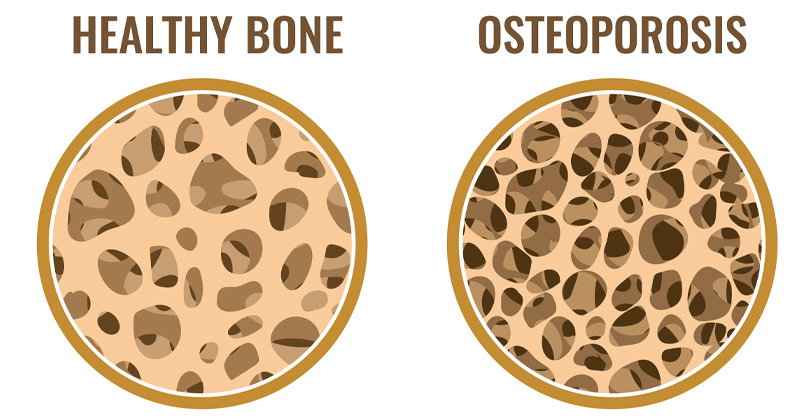You probably already know that calcium plays an important role in bone health. But calcium is not the most present mineral in the body just because of bones and teeth. In fact, calcium also helps lower high blood pressure, support muscle and nerve function, and prevent diabetes. So you can see that calcium deficiency affects more than just your bones.
Calcium is also needed to help control levels of potassium, phosphorus and magnesium in the blood. A magnesium deficiency is often a precursor to a calcium deficiency, which can cause serious health issues. Side effects of calcium deficiency include weak bones, fatigue, heart problems, and more.
Side Effects of Calcium Deficiency
- Brittle, weak bones
- Bone fractures
- Osteoporosis
- Problems with proper blood clotting
- Weakness and fatigue
- Delays in children’s growth and development
- Heart problems involving blood pressure and heart rhythms
Calcium Health Benefits
1. Supports Bone Health
Calcium health benefits include the ability to support bone health. Alongside Vitamin K and Vitamin D, calcium works to maintain bone mineral density and reduce the risk of fractures. A calcium deficiency can lead to weak, brittle bones that are prone to breaks and fractures.
2. May Help Prevent Osteoporosis
By strengthening bone density, calcium health benefits include the ability to help prevent osteoporosis. Calcium deficiency can increase osteoporosis risk by weakening the bones.
3. Helps Lower High Blood Pressure
Calcium plays a vital role in regulating heart functions. It works to dilate the blood vessels and send chemical nerve signals from the brain to the heart. Calcium health benefits include the ability to lower high blood pressure, regulate heart rhythms and improve circulation. (1)

4. Defends Against Cancer
Research has shown a link between calcium and Vitamin D intake and a reduced risk of death from at least 15 different types of cancer. Calcium has anti-carcinogenic effects thanks to its ability to regulate cell proliferation and induce cell death in cancerous cells.
5. Supports Muscle and Nerve Function
Calcium health benefits include the ability to support muscle and nerve function. It plays a role in the release of neurotransmitters in the brain that control nerve signaling as well as muscle movement. (2)
6. Aids in Weight Loss
Calcium deficiency can negatively affect weight and fat loss. Studies have shown a positive link between fat loss in the torso region and dietary calcium intake.
7. Can Help Prevent Diabetes
Calcium health benefits include the ability to help prevent diabetes. Studies have shown that Vitamin D and calcium together can help optimize glucose metabolism and maintain healthy blood sugar levels. (3)

8. Needed to Maintain Dental Health
Calcium deficiency can lead to tooth decay. Partially stored in the teeth, calcium is needed to protect the health of the teeth and defend against tooth decay.
9. Helps With Indigestion
Studies have shown that calcium can help reduce heartburn and other symptoms of an upset stomach. Calcium-rich food and supplements can often help reverse symptoms linked to GERD and acid reflux.
10. Helps Prevents PMS Symptoms
A calcium deficiency can cause fatigue and worsen PMS symptoms. Studies have shown that calcium can help relieve PMS symptoms like cramps, bloating, muscle aches, headaches and moodiness. (4)
Calcium-Rich Foods
- Whey Protein
- Kefir
- White Beans
- Kidney Beans
- Sesame Seeds
- Okra
- Collard Greens
- Almonds
- Natto
- Mustard Greens


